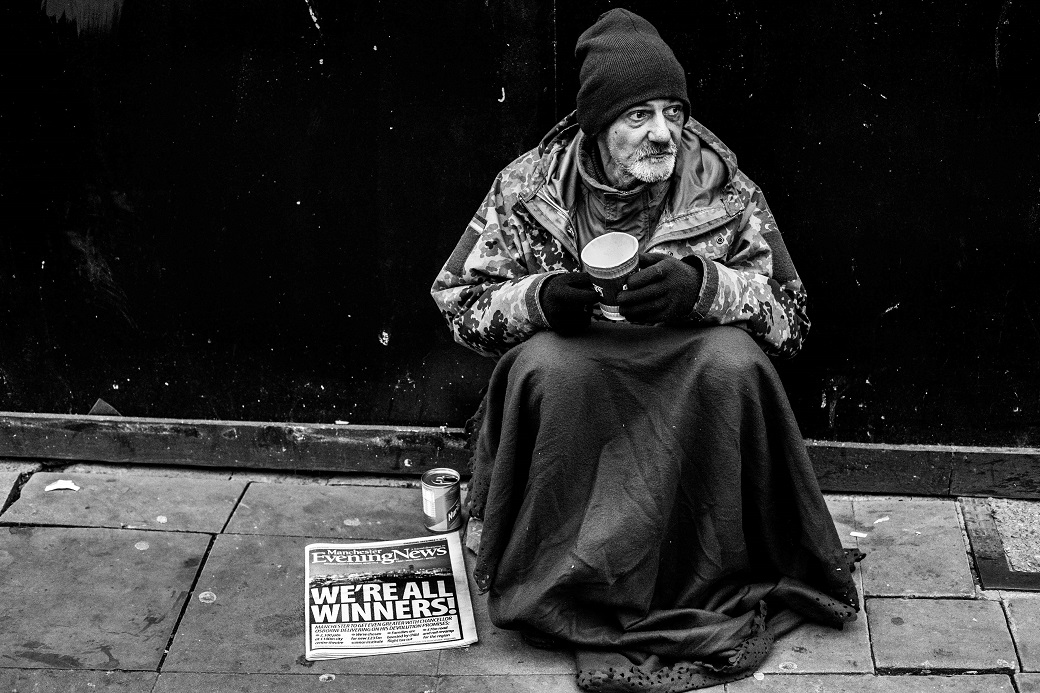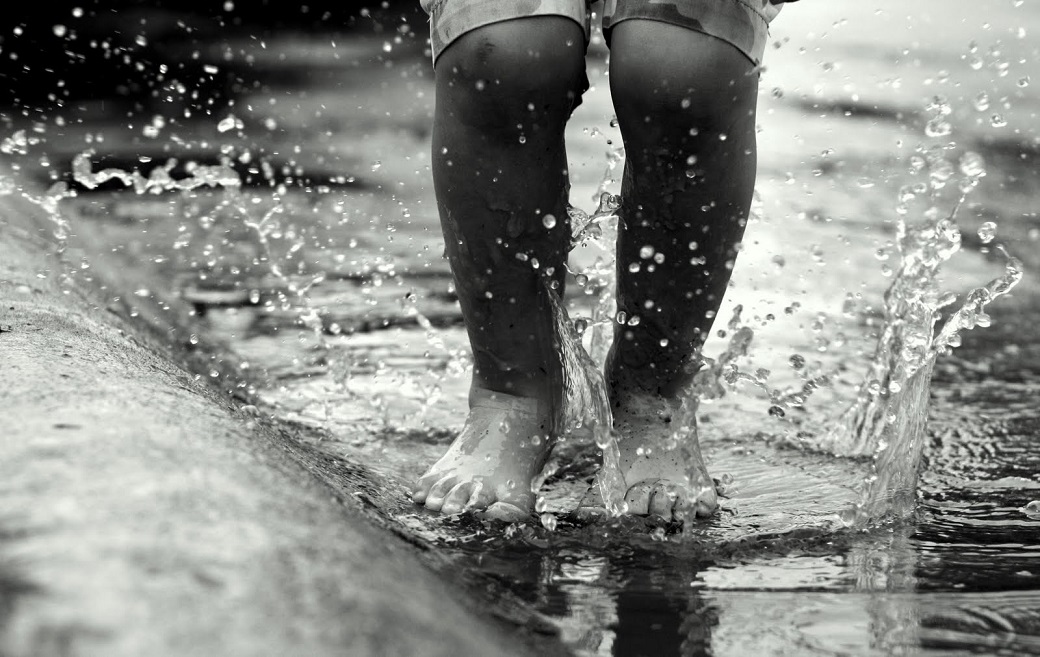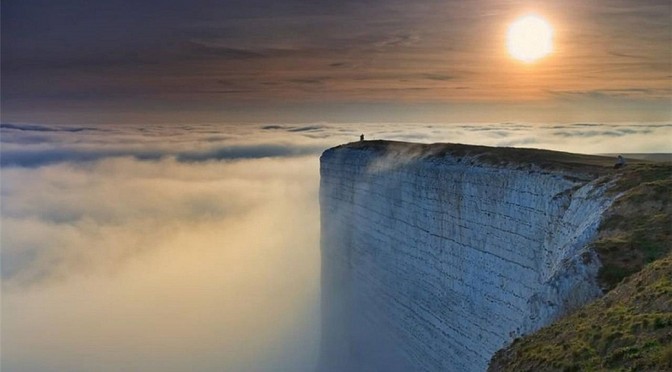by David Cain at Raptitude.com
People mostly want the same thing, and many of us already have it, but we don’t really notice it.
I have no way of confirming this, but I bet that if you could interview people across different centuries and cultures, asking them what they wanted most, you would notice a distinct theme in their answers.
Some people would want great riches or power. Others would say they want something very specific: to invent a particular thing, or for a particular person to love them, or to win a gold medal or give an Oscar speech.
But I suspect most of them would say they want something like this:
I want to be able to do my work and spend time with my friends and family, free to live my own values in relative peace. I just want a fair chance to pursue love and happiness, and a stable, humble life.
You could call this “The Peacetime Dream”, a life with the normal share of ups and downs—necessarily including heartbreak, health issues, setbacks and disappointments—but which isn’t defined by war or persecution. Almost universally, people want basic stability and basic freedom, and to someone who doesn’t have those things they are clearly the best things in the world.
But to someone who does have those things, their greatness is not so clear. It’s easy to forget, or never notice at all, that many or most of us already have this state of affairs, more or less—certainly most people who read blogs in their spare time.
It’s also easy to forget that many (or most?) of history’s humans never had the Peacetime Dream. I wonder how many billions of individual human lives have been lived under tyrannical regimes, forced servitude, or during a war or a plague, or maybe all of those things.
I don’t know what your everyday worries are about, but I often worry about things like my work being criticized, the difficulty in making friends post-high-school, the ease of putting on weight at Christmas, the advance of age, the murkiness of our tax laws, and the declining quality of consumer products.
One defining characteristic of all of these concerns, aside from their ability to dominate my mind on a regular basis, is that they would evaporate the instant my basic freedom and stability were threatened. If the power went out and it became clear that it wasn’t coming back on, suddenly few of our day-to-day worries wouldn’t matter much. All we would care about is regaining the Peacetime Dream, that relatively stable state of affairs that allows a person to build a life.
But when we live in the Peacetime Dream, and always have, we don’t even notice it. Imagine already having the one thing human beings most covet, and not knowing it. Our ability to take this foundation for granted is quite amazing. Even when I do worry about true horrors like incarceration, starvation and violence, I’m worrying on behalf of other people. I believe (without realizing it) that it will always be someone else who experiences them.
In those rare moments when you’re aware of the Peacetime Dream, to even go for a walk down the street is a joy. I remember being touched by a photo of a British Spitfire pilot crouching down to kiss the ground after a rough flight. Even if it’s right under our feet, we simply can’t see the value of what we have until we have some sense of being without it.

Noticing the ground we walk on
A friend and I were talking about living under catastrophe while playing Fallout 4, where a wholesome, 1950s-style America is razed by a nuclear war. The intro is a moving sequence in which a whole neighborhood rushes to an underground shelter, leaving televisions on and stoves lit—because suddenly one’s house burning down is a very minor thing—as the bombs ignite on the horizon and the sky turns orange.
It didn’t immediately occur to us that this could really happen (and in fact has). Thinking aloud, I said that European civilians in the 1940s, who watched their cities get bombed to rubble, must have been convinced at the time that the end of the world was actually arriving. My very smart friend replied that for a lot of people, the end of the world is exactly what it was.
This was a new thought to me. We tend to think of the something like the Second World War as an unthinkable series of atrocities that is thankfully over. But for about seventy million people, each viewing the proceedings from their own corner of the world, it truly was the apocalypse, the very end. The end of the world isn’t just something that will happen to our species someday. It is something that has happened, to real people.
Of course, when we talk about “the end of the world”, we don’t mean the destruction of the planet. That event is assured, but so is our absence for it. The sun will incinerate our blue marble in a few billion years, but that will be long after every trace of our history has been erased. (Well almost every trace.)
When we talk about the end of the world, we mean the loss of civilization as we know it—the collapse of everything dear and precious, everything that had ever seemed secure, right before our eyes. This is a real thing that happens sometimes.
I realize this sounds morbid. We don’t like to think about the end of the world. But that’s why we probably should, occasionally but deliberately. We are so attached to civilization, stability, and freedom that we don’t want to even imagine life without them. For that reason, we stop noticing these huge, essential pieces of our happiness, and we fill our heads with worries about the state of the smallest pieces—missed appointments, insensitive comments, and other day-to-day ephemera that probably won’t matter a month from now.
The Peacetime Dream is the holy grail of backdrops for a human life, and it is a peculiar tragedy that we still aren’t great at finding happiness in it. Ironically, what would perhaps help us most is to look out at our neighborhoods and picture what they might be like as ruins.
Reminding ourselves of the possibility of losing everything isn’t a new idea, but it isn’t especially popular. Alain de Botton often talks about reviving the Middle-Ages practice of keeping a human skull on one’s writing desk, which reportedly has a powerful clarifying effect on one’s priorities.
The occasional apocalyptic daydream is similarly powerful perspective exercise, a bit like looking up at the stars to remind you that your problems are a small part of the whole show. Taking twenty seconds to picture your surroundings as a post-apocalyptic ruin doesn’t sound pleasant, but it has a palpably liberating effect. Suddenly it seems significant that civilization is still happening—it turns out your timing was excellent.
Imagining the end of the world is the grand-scale version of my favorite gratitude practice: glancing at a loved one as though they’re gone and you’re only remembering them. The payoff isn’t in the morbid fantasy about loss, it’s the instant when you return from the daydream and recognize what you really have, that you’re living right in the middle of a fragile golden era. It’s unique and beautiful and will one day be gone, and you are fantastically lucky to be here for it.

(Some lovely end-of-the-world music for you to contemplate by.)

